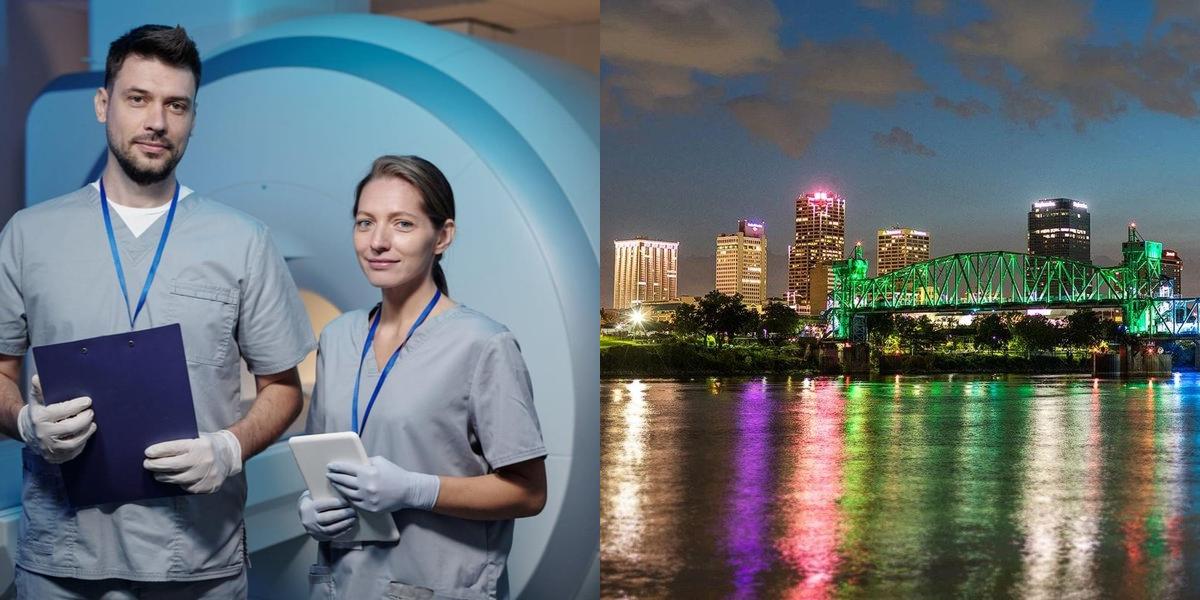How to Become a Radiology Technician in Arkansas

What is a Radiology Technician?
Radiology technicians, also known as radiographers, are healthcare professionals who use specialized equipment to create images of the human body. Their primary responsibilities include:
- Positioning patients and operating imaging equipment such as X-ray, CT, and MRI machines
- Preparing and administering contrast materials for certain imaging procedures
- Ensuring patient safety and comfort during imaging procedures
- Analyzing images and providing them to radiologists for interpretation
Article continues after recommendations
Recommended for you
Where Does a Radiology Technician Work?
Radiology technicians typically work in hospitals, medical clinics, diagnostic imaging centers, and other healthcare facilities. They may also work in specialized settings such as emergency rooms, operating rooms, and mobile imaging units.
How to Become a Radiology Technician in Arkansas?
To become a Radiology Technician in Arkansas, one must first complete an accredited Radiology Technician program, which typically takes 2 years to finish. Next, individuals must obtain certification by passing the American Registry of Radiologic Technologists (ARRT) exam. Once certified, they can search for Radiology Technician jobs in Arkansas to start earning their deserved salary.
What are the Requirements to Become a Radiology Technician in Arkansas?
To become a radiology technician in Arkansas, you must meet the following requirements:
- Education: Complete an accredited radiologic technology program, which typically takes 2-3 years to complete and results in an associate's degree or certificate.
- Licensure: Obtain a license to practice as a radiology technician in Arkansas, which requires passing the American Registry of Radiologic Technologists (ARRT) examination.
Exploring a Career in Radiology Technician Outside Arkansas
For those inspired to become a Radiology Technician but living in a different state, achieving your ambition is still very much a possibility. You could explore becoming a Radiology Technician in Connecticut, Georgia , Nevada, South Dakota, or West Virginia. And if you're not near any of these, Dreambound is here to assist by offering an easy way to find and compare Radiology Technician classes by search by zip code. With the right mindset and resources like Dreambound, starting a career in healthcare is possible from any place.
How Do I Get My Radiology Technician Certification?
To obtain your radiology technician certification in Arkansas, you must:
- Complete an accredited radiologic technology program.
- Pass the ARRT examination.
- Apply for a license to practice as a radiology technician in Arkansas.
Get courses selected just for you
Try our powerful search engine
How Do I Get a Job as a Radiology Technician?
To secure a job as a radiology technician in Arkansas, you can:
- Search for job postings at local hospitals, clinics, and imaging centers.
- Network with professionals in the field and attend industry events.
- Consider internships or entry-level positions to gain experience.
- Highlight your education, certification, and any relevant skills or experience.
Career Paths and Opportunities after Becoming a Radiology Technician
After becoming a radiology technician, you can explore various career paths and opportunities, such as:
- Specializing in a particular imaging modality (e.g., CT, MRI, or mammography)
- Advancing to a supervisory or management role
- Becoming an educator or instructor in a radiologic technology program
- Pursuing additional certifications or specializations
Final Thoughts
Becoming a radiology technician in Arkansas can be a rewarding career path, offering opportunities to work in a variety of healthcare settings and contribute to the well-being of patients. By meeting the educational and licensure requirements, you can embark on a fulfilling career in this dynamic field.
Wondering if there's more? Perhaps these other articles will be more helpful if this one isn't exactly what you're after:

Athena is Co-founder and CEO of Dreambound.




